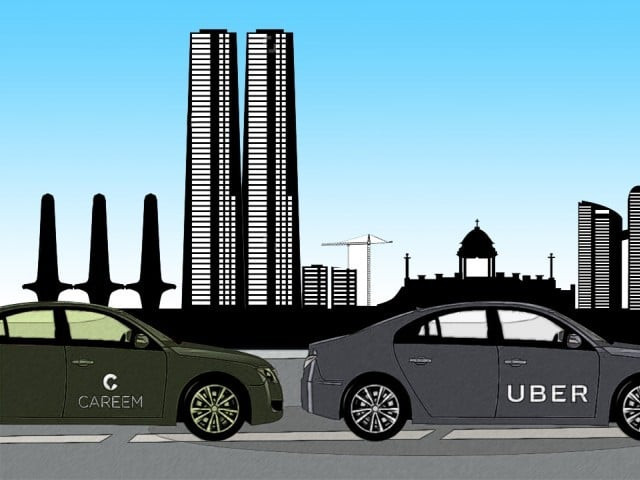A taxi driver wants Uber, Careem penalised
IHC issues notices to ride-sharing companies, capital police and administration

IHC issues notices to ride-sharing companies, capital police and administration. PHOTO: CREATIVE COMMONS
Hearing the petition filed by a taxi driver, the Islamabad High Court (IHC) on Friday issued notices to the Islamabad Transport Authority (ITA), the Islamabad Traffic Police, Pakistan Telecommunication Authority (PTA), Capital’s Chief Commissioner, along with ride-sharing services Uber and Careem.
Uber 'MINI' gives Islamabad and Pindi an affordable ride-hailing option
Justice Mohsin Akhtar Kayani directed the respondents to submit their replies to the petition within a fortnight.
The petitioner, through his counsel Umer Gillani, had approached the IHC stating that Careem and Uber along with their ‘thousands of agents’ were committing gross violations of the legal and regulatory framework for motor vehicles and deserved to be punished.
In its order on Friday, Justice Kayani noted down Gillani’s arguments that using private vehicles to provide taxi services is a crime under section 106 of the Motor Vehicles Ordinance and that the law enforcement authorities have been failing in their duty to enforce this law against Careem, Uber and their managers and drivers.
Gillani made ITA Secretary SSP ITP Malik Matloob, Islamabad Chief Commissioner Zulfiqar Haider, PTA chairman, and the general managers of Careem Cab network Pvt Limited and Uber Technologies (Pvt) Limited as respondents.
While Careem has previously been subject to litigation in the capital, this case is the first legal challenge for its competitor Uber in Islamabad.
The petitioner had earlier urged the Islamabad Police to charge and prosecute the managers as well as the drivers of Careem and Uber under the MVT law which prescribes six months imprisonment, although in cases deserving leniency, a fine of Rs500 may be imposed.
Scores of Islamabad's cabbies protest against online taxi services
Gilani said that petitioner had also urged the PTA to block the websites and apps of these companies under Section 37 of Prevention of Electronic Crimes Act, 2016.
However, he said, the authorities did nothing to prevent or punish the repeated commission of the offence, leaving the petitioner no option but to approach the IHC.
The petitioner also complained that the police, PTA and the capital’s transport authorities were not providing a level playing field to existing taxi-drivers and the new entrants into this market – Uber and Careem.
“The gross violation of law by Uber and Careem has created a non-level playing field in the taxi business,” Gillani stated.
He argued that taxi drivers are required to paint their cars in a special way, pay fees to get contract carriage permits and PSV driving licences. On the other hand, he said, Careem and Uber drivers are not required to follow any of these rules.
The petitioner claims that this discriminatory treatment is destroying the livelihoods of thousands of families and has urged the IHC to intervene in the matter. He has also asked why the drivers associated with the two services have been exempted from relevant laws.
Gilani contended that Careem and Uber drivers ought to be prosecuted for their criminal offences. The management of Careem and Uber, being the “cause” of these violations, and being the mastermind of this plot, are also liable to be prosecuted for the same criminal offences.
Published in The Express Tribune, September 16th, 2017.



















COMMENTS
Comments are moderated and generally will be posted if they are on-topic and not abusive.
For more information, please see our Comments FAQ